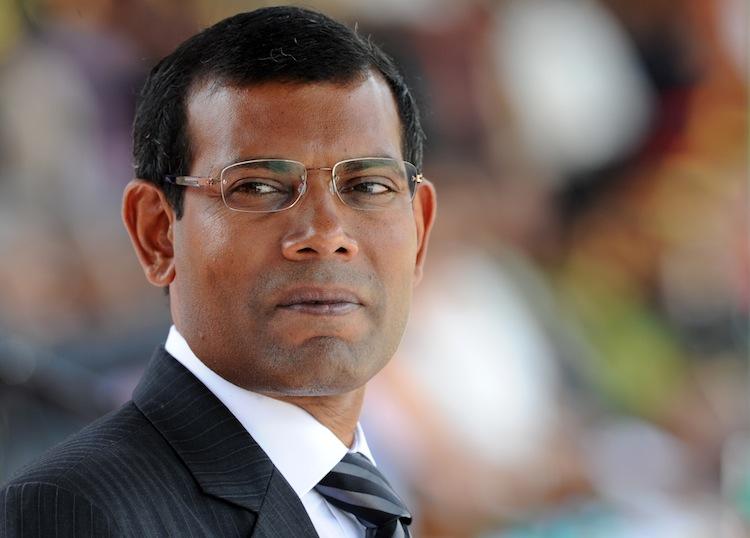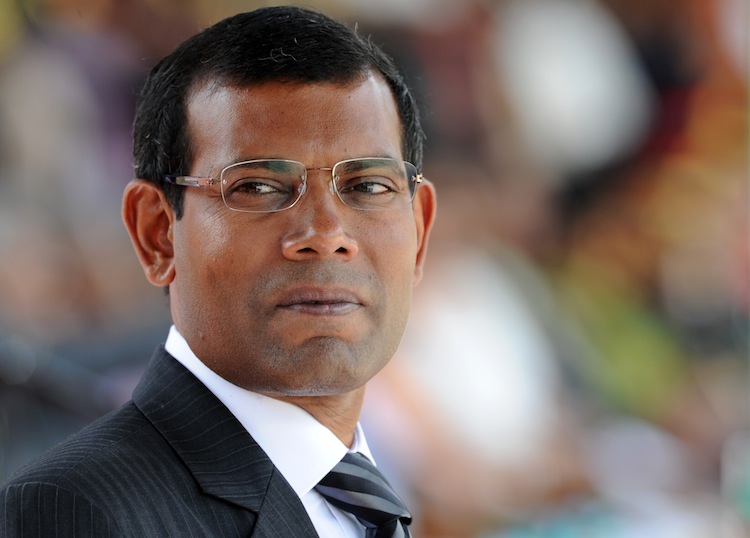Following clashes in the capital of Maldives, the president of the small Indian Ocean nation resigned on Tuesday, ceding power to his vice president.
President Mohamed Nasheed, 44, announced his resignation, saying that “the people of the country would suffer more” if he were to remain in power, according to a statement released by his office.
“I wish the Maldives would have a consolidated democracy. I wish for justice to be established. My wish is for the progress and prosperity of the people,” he added.
Vice President Dr. Mohammed Waheed Hassan was sworn in and named the country’s interim leader.
Dr. Waheed, as he’s most commonly referred to in Maldives because of his doctorate from Stanford, in a statement on Tuesday, said the rule of law would be maintained.
“The nation witnessed difficult times in the recent past, but today the Maldivian people have made a momentous decision,” Dr. Waheed said. “Following that decision … at any cost, the rule of law must be upheld.”
The interim leader said that opposition parties and the public must set aside differences to ensure national unity amid clashes between soldiers, protesters, and police who sided with protesters in the capital, Male.
There were rumors that Dr. Waheed may have orchestrated a coup along with the military and the police, reported Al-Jazeera.
An unnamed official with Nasheed said, “This is a military and police coup. Make no mistake about it.”
However, military spokesperson Col. Abdul Raheem Abdul Latheef said Nasheed was safe and made the choice to step down.
“It is not a coup. Definitely not a coup,” Latheef told Al-Jazeera. “The military advised the president to resign today. It was his initiative.”
Nasheed and Waheed won the October 2008 election—the first direct elections for president in the country’s history—defeating Maumoon Abdul Gayoom who had ruled for 30 years.
A few months earlier, Gayoom had signed into law a new constitution enshrining protections for human rights for the first time among other sweeping reforms.
“We’ve had a huge changes in the political system in the Maldives,” Hassan told the Epoch Times a few months after winning the election.
The last regime, said Hassan, was characterized by brutal torture and a lack of basic freedoms. “With this new change, we have left that behind,” said Hassan.
Nasheed was considered a political dissident before the reforms and lived for years in exile after multiple arrests for writing about government corruption. Because of the torture he suffered he was named an Amnesty International prisoner of conscience. Among those who campaigned for his release was Waheed.
Waheed first joined electoral politics in 1989 and tried to institute a number of reforms. However, in 1991, after family members and supporters were arrested, some sentenced to long terms, he left the country.
“I was harassed, I was detained, but never tortured or imprisoned,” he said.
During his decade away, he had a successful career as a senior member of UNICEF, working in a variety of countries.
“Human rights is the basis for our democratic change,” said Waheed, who said that the Maldives has created a predominately Western-style democracy in an Islamic country.
“We have to be persistent and patient and try to get these institutions to work well,” he said at the time.
The Maldives is made up of around 1,200 islands—roughly 200 of which are inhabited—scattered in the Indian Ocean and is located around 250 miles southwest of the Indian subcontinent. It has a population of about 314,000 almost entirely Sunni Muslim, plus another 80,000 expatriates mainly working in tourism.







